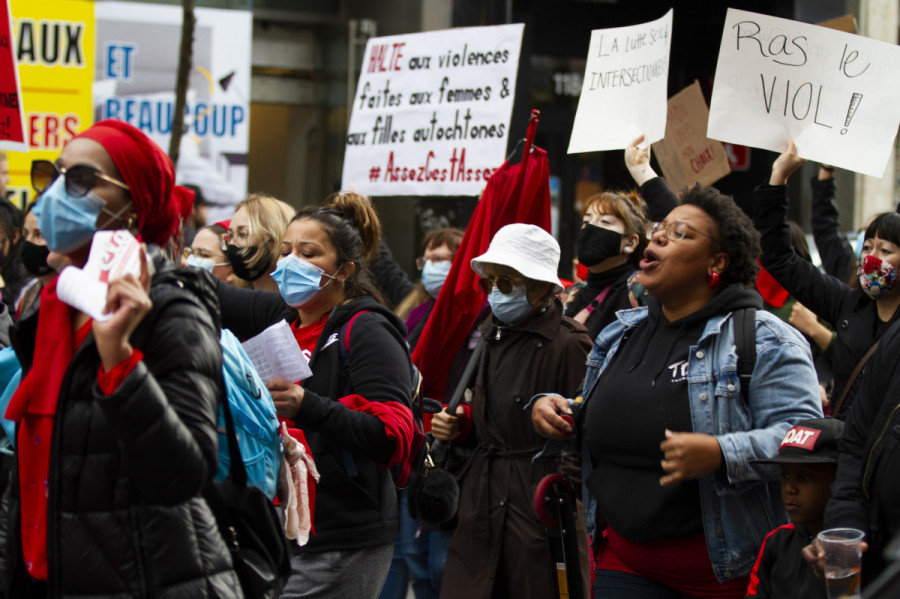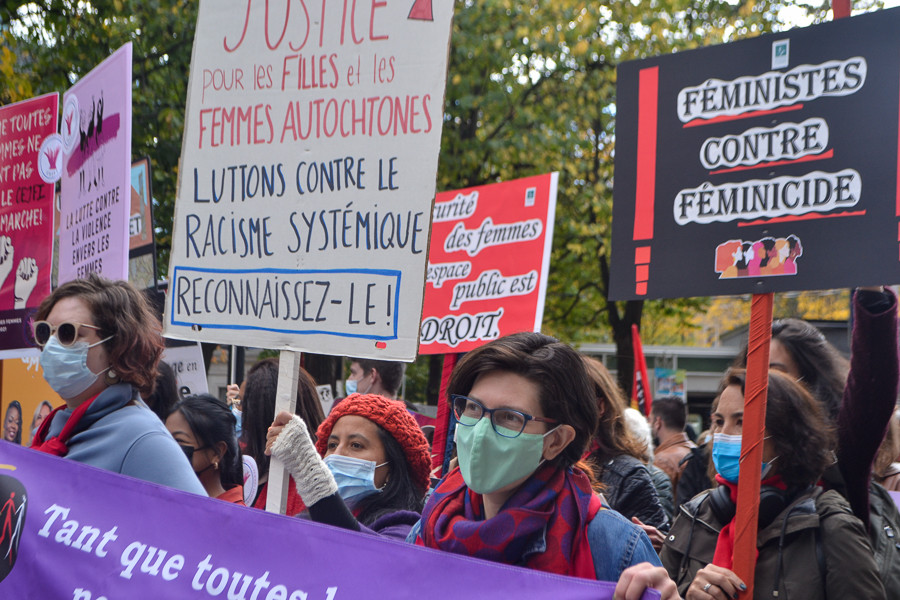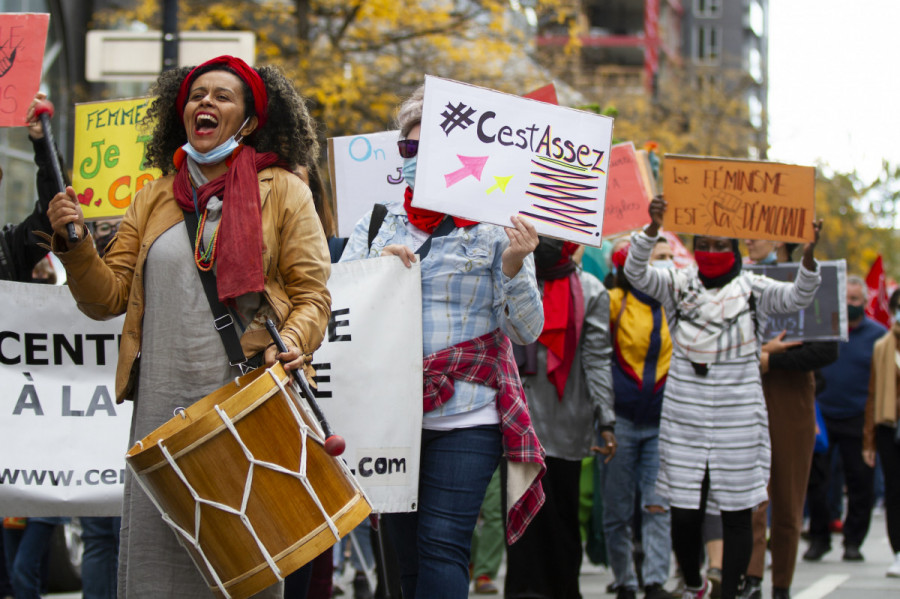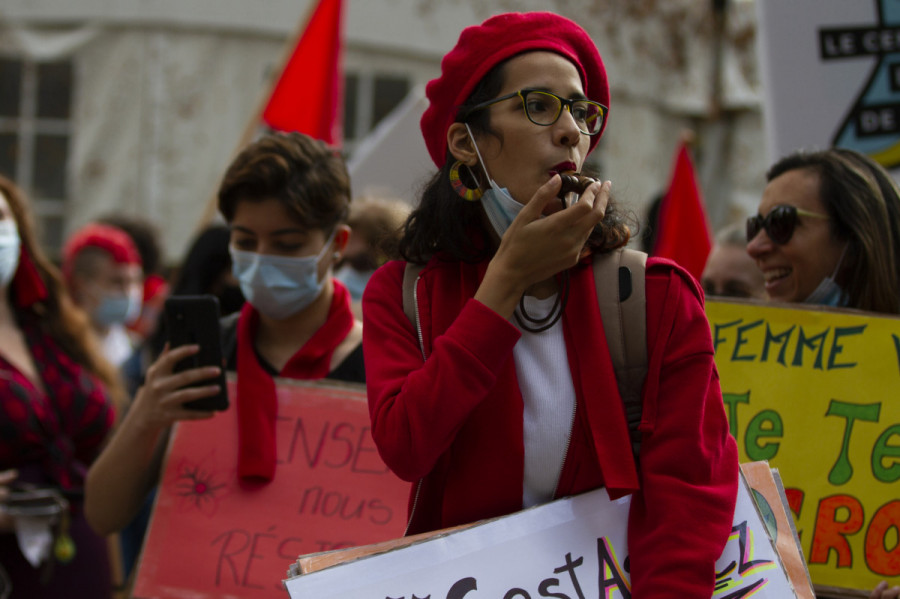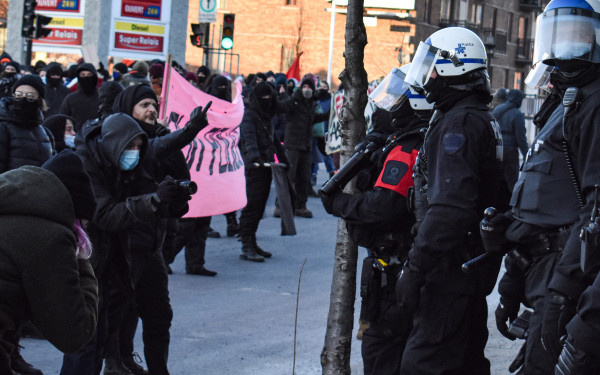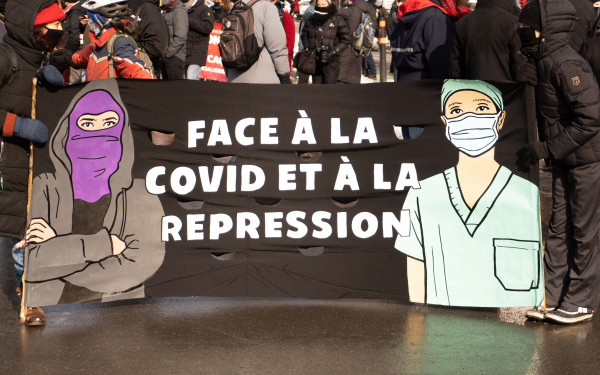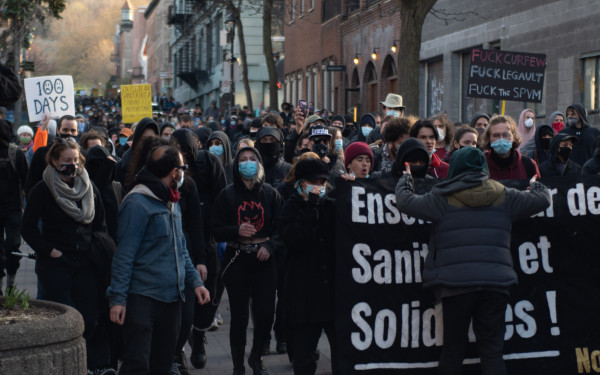Global Women’s March took over the streets of downtown Montreal
Protesters come together to denounce violence against women, abuse of Indigenous women
The fifth edition of the global Women’s March overtook the streets of downtown Montreal on Oct. 17, where hundreds marched in solidarity with women from marginalized groups from all over Quebec.
“United women will never be defeated,” the crowd yelled. Protesters were chanting slogans, dancing along to the music and remained cheerful throughout the demonstration.
The Coordination du Québec de la marche mondiale des femmes, the organizers of the march, outlined their demands as such: eliminating violence against oppressed women, recognizing the discrimination of Indigenous women, improving the integration of immigrant women, reducing poverty, and acknowledging the existence of systemic racism.
“We lost a lot of our culture. We lost a lot of our language. We lost a lot of our women, and we lost a lot of our men. We lost a lot of spirits,” said Sedalia Kawennotas Fazio, an elder and activist from the Kanien’keha:ka community.
CQMMF distributed pieces of red fabric to pin on demonstrators’ clothes as a sign of support.
Read more: Concordians in local politics
“Join this movement,” said Viviane Michel, president of Quebec Native Women Inc. and co-spokesperson of Women’s March Global. “This is a women's movement, yes, but it is for our children, our future children, [so that] they do not have to live [through] injustices, violence and femicides.”
Since the pandemic hit, the government put communication with the organization on hold, said Virginie Larivière, spokesperson for CQMMF and leader for the Collective for a Poverty-Free Québec. “The government could and should do something about it,” affirmed Larivière.
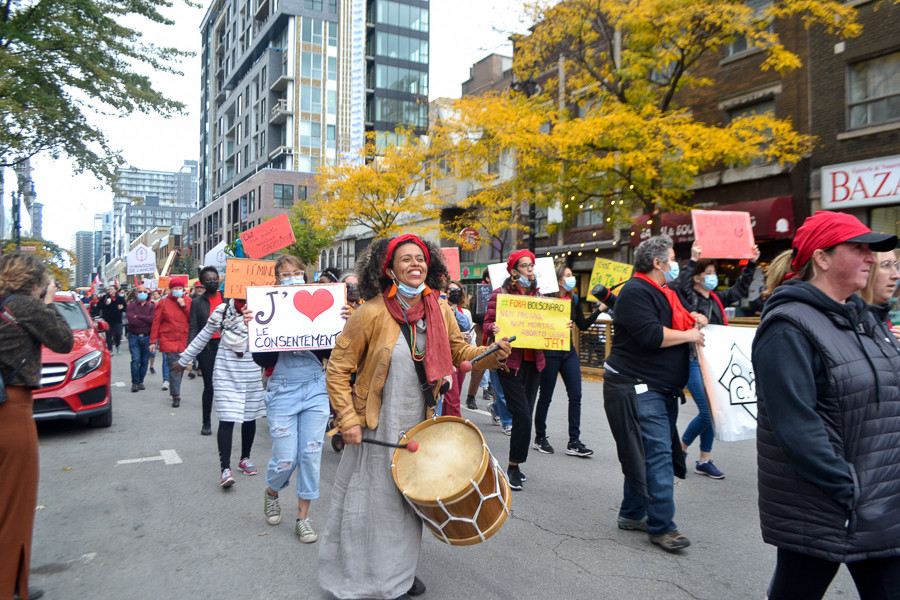
She believes activist groups cannot erase injustices, but believes working hand in hand with the government could enact change to raise the minimum wage, increase funding for domestic violence groups, and more.
“It's not about feminism, but reintegrating everyone in the society,” said Raphael Asimwe, one of the protesters.
“We’re really looking to change society, and the way society treats women,” said Diana Lombardi, co-spokesperson for Coalition montréalaise de la Marche mondiale des femmes, an organization under CQMMF. “Yes, we can raise awareness. Perhaps, we can also make them understand, largely, anyone in the population that these needs need to be met. So, I guess, we can’t stop, we won’t stop, and we just hope that, if we keep saying it, we can gather more people with us.”
Read more: Juliette Côté-Turcotte wants to re-imagine Montreal’s municipal politics
For Lombardi, the march goes beyond being heard. It’s about recognizing the issues Black, Indigenous, and Women of Colour face regularly. Furthermore, it’s about translating their demands into actual policies and laws with the help of the government.
“Often, immigrant women do not know their rights. We are there to raise awareness, inform them, and [help them towards] better integration in Quebec,” said Micheline Cantave, director of Le Centre des femmes interculturel Claire. She’s participated in many women’s marches, and she felt like it was her duty to walk with CQMMF, following the increase in acts of violence committed against women during the pandemic.
“There are some women who don’t have a voice. So, I hope that if I’m here today, I’m giving them more power,” said Maryllis Tremblay, a theater student from the Conservatoire de musique et d’art dramatique du Québec. As a young woman, she’s already engaged in the cause. She understands the importance of supporting marginalized women, and the need to fight for their liberation.

